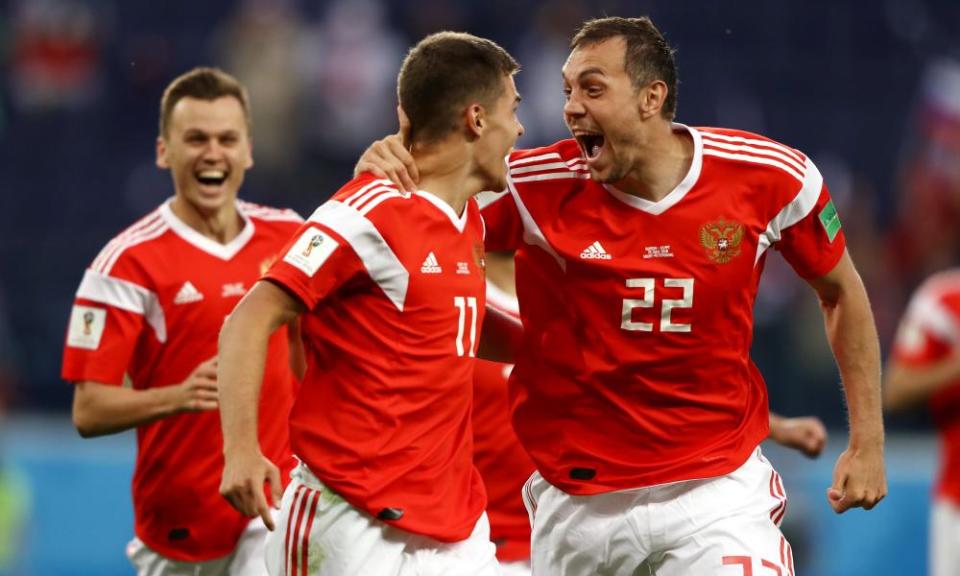Russia drug-tested more than England and world has nothing to fear, says doctor

Russia’s team doctor has disregarded calls for his players to be tested for doping, saying the squad have likely given more samples in the past year than England.
The remarks came after a senior US anti-doping official told the Guardian that it would be “naive” not to think that Russia could violate anti-doping rules again during the World Cup.
Speaking with Russian media the team doctor Eduard Bezuglov said that players had given more than 300 samples over the past year to Fifa, Europe’s Uefa and the Russian anti-doping agency Rusada and that “all of them turned out to be clean”.
READ MORE: The face of Russia’s World Cup is actually a porn star
READ MORE: Sepp Blatter defies FIFA ban to attend matches in Russia as guest of Vladimir Putin
READ MORE:Burger King apologises for lewd Russian advert
He blamed the English press for raising the subject, saying he would “make it simple” for British journalists by revealing details of the testing regimen.
“I’m ready to bet on a bottle of milk that the English have not given samples as often,” the doctor said, apparently playing up his squad’s healthy lifestyle. “So people should focus on themselves and have nothing to fear.”
Fifa has refused to release information about its testing regimen for the Russia team, who have stormed to victories against Saudi Arabiaand Egypt. The Russia team have run more than any other in those two victories.
The rejuvenated side have raised eyebrows because they were expected to be one of the tournament’s worst.
A report by Richard McLaren commissioned by the World Anti-Doping Agency and published in 2016 found that 33 footballers, including some foreigners, were among more than 1,000 athletes found to be involved in a Russian state-sponsored doping programme around the 2014 Sochi Olympics.
The whistleblower Grigory Rodchenkov, who administrated the doping programme as the head of Russia’s anti-doping laboratory, said in May that he recognised one of Russia’s World Cup footballers from his own doping programme. It was not clear whether Rodchenkov was referring to someone in the squad cleared by Fifa or on an earlier list of potential players.
Fifa consulted McLaren in the run-up to the 2018 World Cup but announced in May that it had found “insufficient evidence” to assert an anti-doping rule violation. It said all tests results were negative and that Wada agreed with Fifa’s decision to drop the cases.
Russia’s next match is on Monday against Uruguay in Samara.

 Yahoo Sport
Yahoo Sport 





































